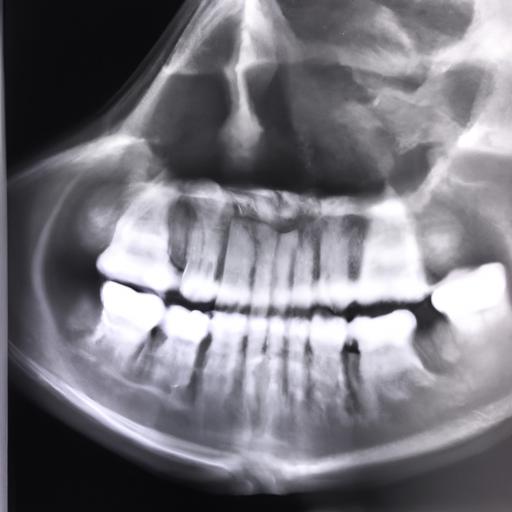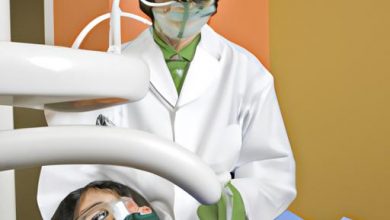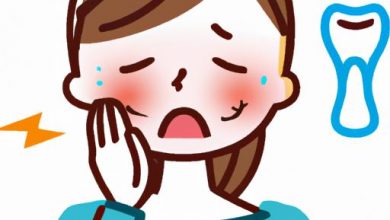Can Dental Work Cause Jaw Problems?
Jaw problems are a common dental issue that can arise due to various reasons, including dental work. Dental work can cause jaw problems due to the stress placed on the jaw during the procedures. In this article, we will explore the different types of dental work that can cause jaw problems, the symptoms to look out for, and the treatments available.
Introduction

The jaw is a complex structure that plays a vital role in our daily lives, from eating to speaking. Any issue with the jaw can cause discomfort, pain, and difficulty performing these essential functions. Dental work is one of the causes of jaw problems, and it is essential to understand the relationship between dental work and jaw issues.
Types of Dental Work
Dental work is any procedure that is performed on the teeth or gums to improve their health or appearance. Several types of dental work can cause jaw problems. Let’s take a closer look at them:
Crowns and Bridges
Crowns and bridges are dental restorations that are used to replace damaged or missing teeth. They can put pressure on the jaw, which can cause jaw problems such as TMJ disorder.
Braces
Braces are orthodontic appliances that are used to correct misaligned teeth. They can put pressure on the jawbone, causing pain, discomfort, and difficulty chewing.
Dental Implants
Dental implants are artificial tooth roots that are used to replace missing teeth. They are placed in the jawbone, and they can cause bone loss or damage to the jawbone.
Root Canal Therapy
Root canal therapy is a dental procedure that is performed to remove infected or damaged dental pulp. The procedure can put pressure on the jawbone, causing pain and discomfort.
In summary, dental work can cause jaw problems due to the pressure placed on the jaw during the procedures. Understanding the different types of dental work that can cause jaw problems is essential to prevent or manage these issues. In the next sections, we will explore the jaw problems caused by dental work and the symptoms to look out for.
Jaw Problems Caused by Dental Work
Dental work can cause several jaw problems that can affect one’s quality of life. Here are some of the most common jaw problems caused by dental work:
Temporomandibular Joint (TMJ) Disorder
TMJ disorder is a condition that affects the temporomandibular joint, which connects the jawbone to the skull. The disorder can cause pain, discomfort, and difficulty moving the jaw. Dental work such as braces, crowns, and bridges can cause TMJ disorder due to the pressure placed on the jawbone during the procedures.
Overbite or Underbite
Overbite or underbite is a condition where the upper or lower teeth protrude further than the opposite teeth. Dental work such as braces can cause overbite or underbite if not correctly fitted or adjusted, leading to jaw problems.
Lingual Nerve Damage
Lingual nerve damage is a condition where the nerve that controls taste and sensation in the tongue is damaged. Dental procedures such as wisdom teeth extraction can cause lingual nerve damage, leading to pain, numbness, and difficulty speaking.
Bone Loss in Jaw
Bone loss in the jaw is a condition where the density of the jawbone decreases. Dental work such as dental implants can cause bone loss in the jaw due to the pressure placed on the bone during the procedure.
Symptoms of Jaw Problems Caused by Dental Work
Jaw problems caused by dental work can lead to several symptoms that can affect one’s daily life. Here are some of the most common symptoms of jaw problems caused by dental work:
Pain or Discomfort in Jaw
Pain or discomfort in the jaw is a common symptom of jaw problems caused by dental work. The pain can be mild or severe and can affect one’s ability to eat, speak, or perform daily tasks.
Difficulty Chewing or Speaking
Difficulty chewing or speaking is another common symptom of jaw problems caused by dental work. The pressure placed on the jaw during the procedure can make it difficult to move the jaw, leading to difficulty chewing or speaking.
Clicking or Popping Sounds in Jaw
Clicking or popping sounds in the jaw are a common symptom of TMJ disorder. The sounds can be loud or soft and can occur when opening or closing the mouth.
Headaches or Earaches
Headaches or earaches are other symptoms of jaw problems caused by dental work. The pain can be dull or sharp and can affect one side or both sides of the head. Earaches can also occur due to the proximity of the ear canal to the temporomandibular joint.
In conclusion, jaw problems caused by dental work can cause pain, discomfort, and difficulty performing daily tasks. Knowing the symptoms of jaw problems caused by dental work is essential to seek prompt treatment and prevent further complications. In the next sections, we will explore the prevention and treatment options available for jaw problems caused by dental work.
Symptoms of Jaw Problems Caused by Dental Work
The symptoms of jaw problems caused by dental work can vary depending on the type and severity of the issue. Here are some common symptoms to look out for:
- Pain or discomfort in the jaw area
- Difficulty chewing or speaking
- Clicking or popping sounds in the jaw when opening or closing the mouth
- Headaches or earaches
- Swelling or tenderness in the jaw area
If you experience any of these symptoms, it is essential to seek the advice of a dental professional.
Prevention and Treatment of Jaw Problems Caused by Dental Work
Prevention is always better than cure, and this applies to jaw problems caused by dental work. Here are some preventive measures to consider:
Proper Dental Care and Maintenance
Practicing good oral hygiene is essential to prevent dental issues that can cause jaw problems. Brushing twice a day, flossing daily, and regular dental checkups can help maintain dental health.
Choosing a Qualified Dentist
Choosing a qualified and experienced dentist is crucial to prevent dental work-related jaw problems. A qualified dentist can assess your dental health and recommend the best treatment options.
Communicating with Your Dentist
It is essential to communicate with your dentist if you experience any discomfort or pain during or after a dental procedure. Your dentist can adjust the treatment plan or recommend alternative options to prevent jaw problems.
Using Mouth Guards for Bruxism
Bruxism, or teeth grinding, can cause jaw problems. Using a mouthguard can protect the teeth and jaw from the pressure caused by grinding.
If you experience jaw problems caused by dental work, several treatment options are available. Here are some of them:
Medications
Pain medications and muscle relaxants can help alleviate pain and discomfort caused by jaw problems.
Physical Therapy
Physical therapy can help improve the function and mobility of the jaw. It includes exercises and manual therapy to reduce pain and improve jaw movement.
Surgery
In severe cases, surgery may be required to correct jaw problems caused by dental work. Procedures include arthrocentesis, arthroscopy, and open-joint surgery.
Alternative Therapies
Alternative therapies such as acupuncture, chiropractic, and massage therapy can help alleviate pain and discomfort caused by jaw problems.
In conclusion, jaw problems caused by dental work can be prevented by practicing good oral hygiene, choosing a qualified dentist, communicating with your dentist, and using mouthguards for bruxism. If you experience jaw problems, several treatment options are available, including medications, physical therapy, surgery, and alternative therapies. Seeking the advice of a dental professional is crucial to prevent and manage jaw problems caused by dental work.




